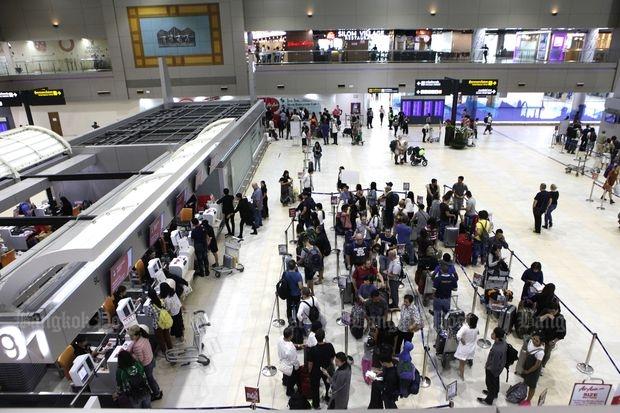Thailand: Airlines ‘charging too much’ after fuel tax hike
Airlines that are raising fares to cover higher jet fuel costs after a tax increase are charging too much, says a government spokesman. The airlines, meanwhile, are taking issue with the government’s calculations.
Lt Gen Sansern Kaewkamnerd was responding reports that four budget airlines would lift domestic fares by 150 baht to cover higher fuel costs. Bangkok Airways is expected to follow suit, while Thai Airways International and Thai Smile are still studying the issue.
The 1,900% jet fuel excise tax increase, which took airlines by surprise last week, was aimed at making the tax system fairer, said Lt Gen Sansern.
“Motorists pay an oil excise tax at the rates of 5-6 baht a litre for petrol and five baht a litre for diesel while airlines have been paying 20 satang a litre for 24 years. Hence the increase in the aviation fuel excise tax to four baht a litre on Jan 25,” he said.
According to Excise Department calculations, the increase should result in a 50-baht fare increase per seat per hour, not 150 baht as claimed by the airlines, he added.
“A mid-sized jet with 200-300 seats uses 2,500 litres per hour. Its burden will increase by 9,500 to 10,000 baht or 45-50 baht per seat after the hike,” he said.
Since most domestic flights are only 60 to 90 minutes, the fares should be increased by around 50 baht, he said.
The airlines have argued that they obtained the 150-baht figure by multiplying the amount of fuel they actually used in a year by the additional tax cost and then dividing by the number of passengers in the same year. They did not assume that all 200-300 seats in each flight would be filled, as the Excise Department apparently did.
“Oil tax changes hinge on world supply and demand and additional revenue will be returned to the people in various forms,” Lt Gen Sansern added.
The spokesman also dismissed the comments of critics who said the government must have been desperate for more revenue.
The government is not broke, he said, and the increase in the aviation fuel excise tax had nothing to do with boosting the bottom line.
He said the fiscal position as of the end of December 2016 was sound, with treasury reserves — the balance of revenue and expenditures — standing at 74.9 billion baht.
“In the first quarter of fiscal 2017 [October-December 2016], the government steadily injected cash into the economy, as evidenced by a 78.2-billion-baht year-on-year increase in budget disbursements, while revenue collection exceeded the target by 27 billion baht,” he said.
Source: http://www.bangkokpost.com/business/tourism-and-transport/1192689/jet-fuel-fare-impact-debated


 English
English




